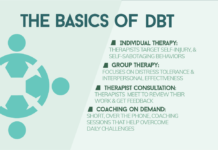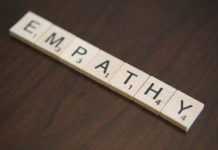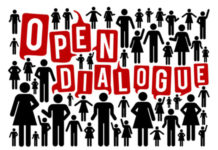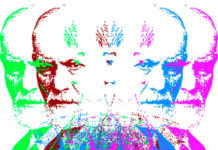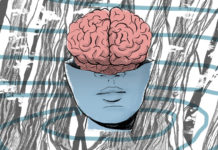Study Finds Hearing Voices Groups Improve Social and Emotional Wellbeing
Hearing Voices Network self-help groups are an important resource for coping with voice hearing, study finds.
Dialectical Behavior Therapy Reduces Self-Harm and Suicide Attempts
A new meta-analysis finds that DBT reduces self-harm, suicide attempts, and reduces the frequency of psychiatric crisis service utilization.
New Data on the Adverse Effects of Meditation and Mindfulness
Study reports on the less-examined findings of difficult and painful meditation-related experiences.
Therapist Empathy Predicts Success in Psychotherapy
An updated meta-analysis reveals that therapist empathy is a predictor of better psychotherapy outcomes.
Study Investigates Long-Term Effects of Social and Emotional Learning Programs
Social and Emotional Learning (SEL) programs have gained popularity in U.S. schools in recent years. A new study examines the nature and longevity of their impact on students.
How Feedback Can Improve Psychotherapy Treatment
Researcher examines the impact of client feedback and progress assessment on improvement in outcomes.
Opening Doors in the Borderlands: An Interview with Liberation Psychologist Mary Watkins
MIA’s Micah Ingle interviews Mary Watkins about reorienting psychology toward liberation and social justice.
Researchers Identify 27 Categories of Emotion
A new study finds that emotions may be represented by 27 categories, with each category relating to others in a more complex and continuous fashion than previously understood.
Psychiatrist Describes Role in Open Dialogue Model of Care
Psychiatrist outlines varying roles in Open Dialogue model, fostering service-user and family agency through meaningful conversations with a team of providers.
Experiences of Depression Connected to Declining Sense of Purpose
In-depth interviews find that those who screened positive for depression did not explain their experience in terms of diagnostic symptoms.
Does Psychotherapy Reproduce or Disrupt Neoliberal Capitalism?
Researchers explore neoliberal influences on interactions in psychotherapy and question whether the radical potential of psychotherapy can counter prevailing social systems.
A Biopsychosocial Model Beyond the Mind-Body Split
Can a renewed biopsychosocial approach, grounded in an updated philosophy, foster person-centered medicine, and psychiatry?
Integrating Indigenous Healing Practices and Psychotherapy for Global Mental Health
As the Global Mental Health Movement attempts to address cross-cultural mental health disparities, a new article encourages integrating traditional healing practices with psychotherapy.
An Essay on Finnish Open Dialogue: A Five-Year Follow-Up
It has been five years since I traveled to Western Lapland in Finland to film my documentary “Open Dialogue” on their Open Dialogue Project—the program, as I stated in the film, presently getting the best long-term statistical results in the world for the treatment of first-episode psychosis. My film came out four years ago, and since then I have been screening it around the world, giving lectures about Open Dialogue and my experience in Finland, participating in regular conferences and Q&A sessions about it, receiving daily emails, Facebook messages, blog and Youtube comments about it (as it’s now been free on Youtube for a year), and keeping in regular contact with some of the folks who work there. But I haven’t shared many of my updated opinions in writing, so I wish to do so now.
Psychologists Argue for Decolonial Approach to Global Poverty
Individualist psychological models of poverty pathologize poor communities, decolonial approaches that emphasize context and interdependence may be more sustainable.
The Conflicts That Result From Globalizing Euro-American Psychology in India
Researchers examine the transformation of work, life, and identity in India as a result of Western corporate and psychological culture.
New Book Deconstructs Ideology of Cognitive Therapy
CBT forwards a hyper-rational perspective of human suffering that complements a managerialist culture of efficiency and institutionalization in the Western world.
New Study Investigates Negative Side Effects of Therapy
Researchers find that nearly half of cognitive behavioral therapy (CBT) patients experience treatment side effects.
Psychodynamic Therapy Revealed to be as Efficacious as Cognitive Behavioral Therapy
Meta-analytic study finds that psychodynamic therapy outcomes are equivalent to those of CBT and other empirically supported treatments.
Correcting Misconceptions of Trauma-informed Care with Survivor Perspectives
Trauma-informed approaches have the potential to promote recovery but must involve survivors and service-users to prevent the experience of retraumatization within psychiatric and mental health services.
Mindfulness Intervention Can Prevent Depression, Study Finds
A combined mindfulness and behavioral activation intervention is shown to reduce depressive symptoms and serve as a preventative factor for major depressive disorder.
Psychotherapists Reflect on Lack of Improvement in Therapy
Qualitative research examines the experiences of psychoanalytic therapists in their work with patients whose symptoms either failed to improve or worsened.
United Nations Report Calls for Revolution in Mental Health Care
In a new report, the United Nations Special Rapporteur on the right to health, Dr. Dainius Pūras, calls for a move away from the biomedical model and “excessive use of psychotropic medicines.”
Psychology Must Become a Sanctuary Discipline to Heal Racial Trauma
Researchers explore pathways of healing racial trauma in Latinx immigrant communities.
The Effects of Practicing Psychotherapy on Therapists’ Personal Lives
A new study, published in Psychotherapy Research, explores how having a career in psychotherapy affects therapists’ personal lives.


